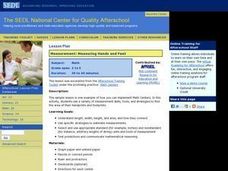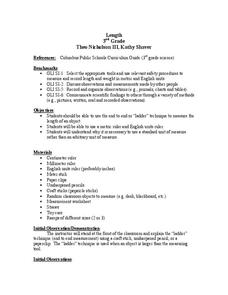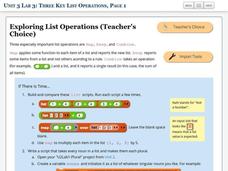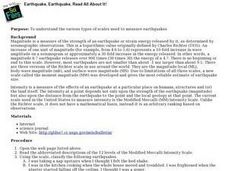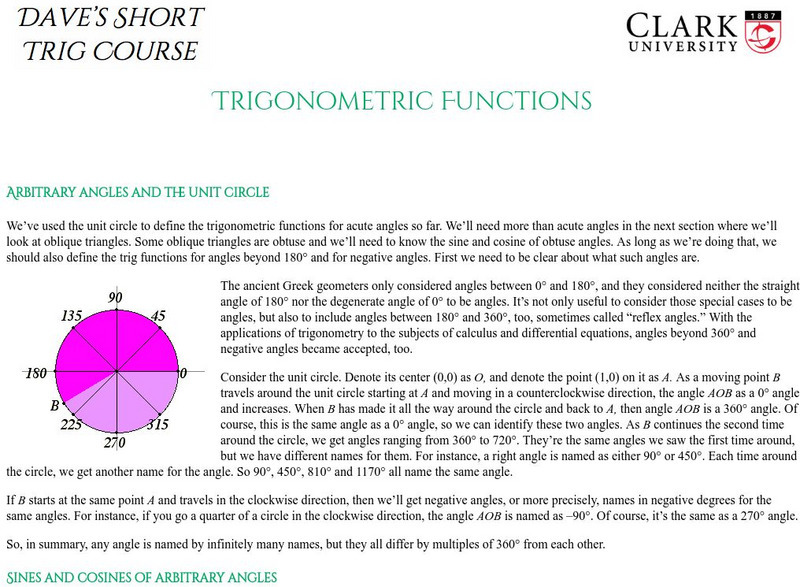Curated OER
Measurement: Measuring Hand and Feet
Here is a good lesson which invites learners to practice measurement using standard and nonstandard measuring tools. In this measurement lesson, learners work with length, width, height, and area. They use standard and nonstandard...
Curated OER
Length
Third graders examine and explore a variety of ways to measure length. They discuss how to measure large objects using the end-to-end method, and in small groups measure the length of the room using the end-to-end method with a...
Curated OER
Geometry- Hands and Feet
Students identify units of measurement. In this measurement lesson, students predict the length and width of their hands and feet. Students discuss their findings and if their predictions were correct.
Curated OER
Unit Circle Lesson Plan
Students identify different locations on a unit circle. In this precalculus lesson, students identify the different trig properties and rewrite the equation of a circle in standard form. They use mnemonic devices to help them remember...
National Endowment for the Humanities
The President Under the Articles of Confederation
The Articles of Confederation sounds like one big, fancy title to middle schoolers. Here, scaffolded steps help to ease novices into understanding this all-important American document. Discussion questions, lesson activities, and ideas...
Beauty and Joy of Computing
Three Key List Operations
Develop an understanding of the Map, Keep, and Combine operations. The lab leads the class through the exploration of three list operations. Each task contains a self-check to measure scholars' understanding of the operation in the task.
Curated OER
Earthquake, Earthquake, Read All About It!
Students utilize the U.S. Geological Service web site. They research the various types of scales used to measure earthquakes and classify different situations on the scale. They write a story about a town that has just experienced a quake.
Curated OER
Gridding a Site
Students establish a grid system over an archaelogical site. They label each grid unit. They determine the location of artifacts within each grid unit. They construct a scientific inquiry concerning the location of artifacts on the site.
Curated OER
No magic borders
Students discuss what they have heard about pollution. They explore the purposes and limitations of political boundaries and borders and identify some of the causes and effects of pollution.
It's About Time
Push or Pull - Adding Vectors
Demonstrate Newton's Second Law of Motion with an engaging lesson. Individuals explore the difference between forces in relation to a push or a pull, and they identify various forces that cause an object to move. They explore the concept...
EngageNY
Construct and Apply a Sequence of Rigid Motions
Breaking the rules is one thing, proving it is another! Learners expand on their previous understanding of congruence and apply a mathematical definition to transformations. They perform and identify a sequence of transformations and use...
Clark University
Clark University: Dave's Short Trig Course: Trigonometric Functions
The Clark University site shows and explains the graphs of the six trigonometric functions. It explains how to find an arbitrary angle measurement using trig. Also, it explains that sine and cosine functions are complementary.


